- Home
- Trevor Hoyle
The Man Who Travelled on Motorways Page 6
The Man Who Travelled on Motorways Read online
Page 6
There is a theory that reality as we perceive it in everyday life is but the tip of the iceberg. For myself (and I can only speak for myself) I do not exist in the ordinary world but inhabit a spacetime zone in which the universe is waiting to be created. I am the pure thought of a being which might one day exist. Alternatively, the entire universe is inside my head. You do not exist except inside my head; we inhabit each other’s consciousnesses, phantoms flitting about in nightmares, creatures of other people’s imaginations.
Of course I had then to get into the car and locate a pub in the middle of a wilderness. It reminded me of a black dance-hall in that it too emitted smoke, heat and light from a dense, packed interior. This throwback of memory was of hot black bodies squashed together, sweat lodging in the moist creases of faded palms. Violence was there in a measured amount. Having ordered a drink I sat down on the antiquated leather and contemplated the oddness of a situation in which I was living out the fantasies of a fictional character. Were it not so ludicrous I could have perhaps persuaded myself that I was the fictional character, a pawn in the hands of an Almighty Author who even at this moment was chuckling quietly to Himself at the illogicality of the position in which He had placed me. The idea, having occured, quite intrigued me. It meant that my thoughts, actions, emotions and experiences were not my own – but His. I was responsible for nothing (as I had no choice in the matter), and anything that happened to me was the arbitrary whim of a Being of whose existence I was ignorant.
I went to the bar for another drink and almost got into an argument with a man standing there. We glowered momentarily at one another but such was the lethargy of the age that neither one of us could summon up an insult. Outside, the heaps of rubble circled endlessly, obvious symbols of decadence and decay. In nearby Oxford Street they were serving late-night Chinese meals.
It was now night, and cold. The littered roads were deserted. Passing beneath a concrete archway, the remnant of a once-imagined nightmare, I began to reflect on the tameness of my existence. There was, literally, nothing that interested me any more. The world was dead; dull and vapid. What had once seemed vital to me was transmuted into a slag-heap of lost hopes and futile ambitions. In reacting to this – and in desperation at having to continue an abortive, self-deluding life – I had turned my back on love, companionship, and true feeling. You might suppose that quite the opposite would happen: that having found the world wanting I should seek to lose myself in sentiment and similar nonsense. Such is not my method; rather, I take my revenge for having been slighted by storing up the venom inside me and spitting it in the face of the loved one. I compound my several failures in the affairs of men with a total disregard for others and a blind selfishness that obliterates every decent human impulse.
To give but one example: a woman who had loved me selflessly had received for her pains a kick in the face – in effect a complete rejection of her solicitous devotion. Having cared for me, despite, and because of, my faults, she had then been treated so despicably that one had to marvel at the tenacity and crass stupidity of the human race – for she continued to offer her love in the blind hope that I might deem it worthy of reciprocation. Naturally this was out of the question. (I am as incapable of the act of love as is a deaf-mute of reciting Shakespeare.) For several years this situation deteriorated until my inhumanness had grown to intolerable proportions and a scene ensued which even to this day I find painful to recollect.
‘Do not suppose for one second,’ I had said harshly, ‘that my life can be altered by anything you say or do. My life is my life.’
Her reproach was gentle, as always. ‘Why should I want to change you when it is for yourself that I love you?’
This reply made me even more angry. Did she think she could blunt my savagery with soft phrases and Christian appeasement? The nerve, the gall of the woman, fairly took my breath away. Particularly so in view of the fact that I was very much aware which of us was in the right. Had I been in this favourable position I too would have smiled sweetly and spoken calmly. But! –
‘Isn’t it true at this moment – and hasn’t it always been thus – that your interference in matters which do not concern you has been the cause of all our unhappiness? You insist on meddling in my affairs, spying on me, and yet you profess to having no desire to affect my life one way or the other.’ I was speaking quickly, in a mechanical fashion, for the argument had been much repeated and had acquired the tone of an actor rehearsing his lines.
‘Could it not be that I am concerned about you?’ she said. Her eyes were open wide, without guile or malice. Was it conceivable that in her God had concentrated the ingredients of a good woman? Such goodness did not exist in human form, surely.
‘If concern it is,’ I said brusquely, ‘it is masked very well by your incessant harping on topics that are personal and private to me alone. I have said that I will not tolerate it, and I will not.’
‘But I do not mean to pry,’ she said. ‘When I inquire about your activities it is because of a deep and abiding interest in you; I want to know everything about you because of the place you have in my heart. Are you so afraid of love?’
I remember raising my eyebrows and snorting a little. The word that had passed her lips always had the effect of embarrassing me, and with the embarrassment came resentment and fear, showing itself in a weak, spiteful gesture or flippant reply. On this occasion I even followed my snort with a deprecatory laugh.
– For an instant I thought I saw tears in her eyes – at any rate a hint of wetness – but as I could not meet her gaze for more than the briefest fraction of a moment I had to turn my back as though out of patience with her foolish womanly sentimentality.
‘You never allow me to come close to you,’ she said in the quietest of voices. ‘I want only to please you, to be a good wife to you, but if you will not permit me to approach you, what can I do?’
At this she did begin to cry: the most humble kind of sobbing I had ever heard. It was muffled by the furnishings in the room, almost to the point of inaudibility, yet it did communicate a sombre anguish the like of which I have never come across before or since. This was obviously an attempt on her part to gain my sympathy, to play for time and thus prevent me from leaving. There was no behaviour I found more tiresome.
Her sobbing went on for several minutes, during which I obstinately refused to look at her, busying myself with rearranging certain objects in the room. Displays of naked emotion are entirely repugnant to me.
‘If you mean to kill me you are going the right way about it,’ she said, the words interspersed with dry shuddering breaths.
‘If that is a threat it is futile and misplaced,’ I said to her. ‘I am not so stupid that I cannot see through your shoddy efforts to coerce me into submission. Your plots and schemes have by this time lost not a little of their impact.’
‘But what am I to do!’ she suddenly cried out. ‘Tell me how I can regain the happiness, the peace and contentment we knew not so very long ago – is it hopeless to want the things that gave my life richness and fulfilment?’
‘Do not come to me,’ I said, adopting a scathing tone of voice. I am not able to promise this so-called richness and fulfilment. I know nothing of the virtues of human existence; only the baseness of it, the deceits, the falseness.’
‘But you must see that the world is beautiful,’ she protested. ‘You must believe that the world is filled with hope, or how else can we advance from day to day? Why do we not kill ourselves this instant?’
I turned to look at her. Her face was pale and stained with tears. To think that all this had to do with me: that I was the cause: it was satisfaction at the deepest level. ‘You are a poor, timid creature,’ I said. ‘And you are also simple-minded in thinking that the achievement of happiness is the sole pursuit of mankind – or even should be the sole pursuit. Nothing could be further from the truth. Our minds are not formed in order to seek happiness but to demonstrate the chaos and inconsistency of existence. Lif
e itself is a mutation, a chance error, a non sequitur, and we have only to live it for a day to realise its implausibility. What we are seeking, in fact, is that state of inertness which is the natural condition of all things. Floundering about in confusion as we do is a stage in our evolution to perfect inertia. Having achieved this we shall then have joined the rest of the universe, and all this other nonsense will be forgotten for all time.’
During this she had been gazing at me morosely, almost fearfully. When I had finished she allowed her eyes to become downcast, no doubt the better to suit her choice of words, and murmured in the softest and tiniest of voices, ‘Are we not to love one another then?’
I snorted again (as this seemed to have the effect I desired) and made a gesture of impatience. Evidently this woman had no concept of true reality. Like all her kind she was capable only of perceiving the crudest, most brutish emotions. Beneath a millimetre or two of skin she was destitute of any vision, reasoning, or intellect. Her mind was a weak, flabby mass of vague, formless generalisations.
‘Are we not to love one another?’ she repeated, this time with more firmness. There was a roughness and an insistence in her voice that belied her gentle appearance.
‘What you speak of as love is mere self-indulgence,’ I said, correcting her in a humorous, but not, I hoped, too condescending a manner. ‘We are not creatures of love and never have been.’
‘You are saying that I do not love you?’ she asked incredulously. Was there a suspicion of tears?
‘Not that you “do not”, but that you cannot,’ I said. ‘There is a difference, but one that I do not expect you to grasp.’
In the months that followed, this conversation was to echo and re-echo in my brain. Like a sly, never-ending tape-recording it would play itself back without any consent on my part, interrupting quiet periods of reverie, persistent as nagging toothache.
It was with considerable disquiet, then, that I walked from the car to the door of the house, yet outwardly I was calm, having always possessed the power to control the quivering of my limbs and the spasdomic twitchings of my facial muscles. In the main room a fire was crackling cheerfully to itself, casting inconsequential shadows over the walls and furniture. Everything here was familiar to me, everything welcomed me by the very nature of its familiarity. For instance, the ornaments on the mantel – though I would find it difficult to describe them – were known to me in the same exact detail as the wrinkles on the back of my hand. On the window-sill stood a photograph in a silver frame whose image was lodged immovably in my subconscious like a metal post set in concrete. By the side of the hearth was placed a pair of tiny shoes, and in the hearth itself a dozen coloured glass marbles winked in the rosy fireglow.
As I entered she was sitting in the chair. Her hair was swept up, with fine delicate wisps of it stirring gently on the nape of her neck. The arch of her neck was white and slender, vulnerable. Her clear-browed lucid eyes registered neither surprise nor alarm at my unexpected return.
I stood rather self-consciously in front of the fire, looking down at her. We did not speak at once. Presently she said, ‘You have come back from a drive?’
It was all I could manage to shake my head. An object caught my eye: a broken toy underneath the table; in the further corner a child’s discarded cap. She must have seen the direction of my eyes, for it prompted her to say, ‘They are asleep.’
I nodded dumbly.
‘Will you stay?’ she asked, not in the smallest degree prejudicing my reply, neither displaying eagerness or hostility.
‘Yes –’ This single word was all I could utter before something cracked in my head and I fell to my knees sobbing. I wept brokenly, begging her over and over to forgive me. If only she would forgive me.
VII
You will have gathered that the good woman, of whom I have made reference, was slighted in the more unbearable way by my intolerable behaviour. That she is still a good woman is a matter for some wonder: that she has not degenerated into an unfeeling savage says something for the quality of goodness which – I suppose – we must all possess to a greater or lesser degree. It is unfortunate that her goodness could not alter my character. But then if some of us were not born evil, against what standard could we measure the good people of this world? You see, there is a reason for my existence after all.
Yet it is no consolation to me to know that my life finds its justification in moral corruption. Scuttling into my little dark hole like a spider I stare out with spider’s eyes at a world that is disgusting beyond the power of words to convey, and it is seen thus because my eyes are concave mirrors reflecting the inner workings of my soul. Were I a ‘good’ person then no doubt the world would appear good (a truism), and if that were the case there would be no need for this book of so-called ‘Confessions’. The sum of which brings me to the conclusion that they have achieved nothing but your confusion and my depression. If anything, I have retreated even deeper into my shell of morbid introspection, sucking vainly on my own entrails just as Val sucked dispassionately on my most private part. It would have at least achieved something had I learned from my mistakes, or had the setting down of them generated remorse, pity, bitterness within me. But alas, gentlemen, filling these pages with words has merely tightened the band of iron around my head. And as for emotions – well, I had better tell you that such emotions as I have are laughable tricks of the imagination, in most instances self-induced to provide motives for my meaningless actions.
In my own defence I can only say that such negative persons as myself are necessary, if only to act as counter-point to the bright world of living things. After all, seeing reality as I do is just as valid as that of a scientist observing natural phenomena. If he represents the positive outlook on the universe, surely I have just as much right to put before you the nihilistic concept of it? That you do not wish to have this presented to you is none of my affair; indeed, I might reply that if you want to dwell in daydreams instead of facing reality the loss is more yours than mine.
For during my short stay on this planet it has become increasingly clear to me that we are all playing the devil’s game. At this I can imagine you thumping the table and frothing at the mouth. ‘Do not be so presumptuous as to say “we are all playing the devil’s game”,’ I hear you cry. ‘All indeed!’ Nevertheless, gentlemen, the fact remains that none of us is engaged in God’s work, and the only conclusion to be drawn from this is that the opposite applies. And again, despite your protests, I insist on the word ‘all’, because it usually follows that those persons who most vehemently deny the fact are the very ones engaged exclusively in playing the devil’s game. But what is this game to which I refer? The term confuses you, so I will attempt to make it clearer. Firstly, it does not appertain to evil (at least not in the sense we have come to understand it); no, it relates to a game in which there are no rules. We play it as innocents, blithely unaware that the reason for our existence is the chance encounter of one molecule with another; had the two molecules never met we should not be here. Of even more significance, had two other molecules encountered one another – again purely due to random factors – another life-form incomprehensible to our senses would now occupy our segment of time and space. We were not destined to be created; neither are we destined to survive.
And the reason I choose to call it the ‘devil’s’ game is that one might be led to suppose that a fiendish intelligence is responsible, such is the beautiful paradox of the system. (Nothing is more paradoxical than a game without rules.) But to suppose an intelligence, fiendish or otherwise, destroys the initial proposition that the game is without purpose or meaning, for if such an intelligence were to exist then so too would purpose and meaning, even if these were a mystery to us.
But at this my mind wearies. Had I not better, at this point, bring these ‘Confessions’ to an end? I cannot be expected to go on indefinitely bringing to mind the painful recollections of imaginary events and experiences …
We live in a dre
am. Our pragmatic age has produced a nation of dreamers, and none more so than those who choose to deal with the bedrock realities of practical affairs and worldly success. Their web is woven of insubstantial stuff, as light as nonsense, that would blow away at the first faint breeze of common sense. I myself am not a dreamer: I am a realist. A romantic realist maybe, but a realist all the same. Again you smile. But why? I am a realist because, quite simply, my perceptions are clearer and sharper than yours. I insulate myself from the everyday fantasy-like world that most of you inhabit – shutting out the peripheral static and dwelling quietly with only my own thoughts for company. Be assured, gentlemen, that were I to suppose for an instant that you genuinely wished to be acquainted with my secret I should not hesitate to reveal it. But you do not. You would rather have your senses befuddled by half-truths – in fact you prefer to be cheated and misled by pretty nonsense rather than have to face the bitter, unpalatable facts of our meaningless lives. You want, at bottom, to be left undisturbed in your little dark holes, snug, safe, and comfortable, encapsulated in embryonic blackness. In so choosing you have brought about your own damnation – for did I not say that the pragmatists of this world are the real dreamers? You will recall quite distinctly that I did. If you wish to be a dreamer, that is your affair, but do not forget that it places you one step removed from the apprehension of true reality. The only solution I can see is that you must leave your little dark holes and come out into the light, cast aside your comfortable shells and be re-born with new eyes. It is a painful process; I give you this advice for nothing. Neither, paradoxically, and in spite of all I have said, will it be of any great benefit to you, because with your heightened perceptions you will at last begin to appreciate the utter bleakness, the total incomprehensibility of the spacetime flux in which our molecules revolve. Naturally I will not look for your thanks, knowing that you would as soon spit in my face for having introduced to you the featureless wastes of the underlife. But at least you will not be comfortable. You will not be self-deluded. Beneath the stone that covers us all you will observe the scurryings of your fellow ants in all their unmitigated horror and desolation: the deviousness of their brains and the selfish chemical reactions which constitute their emotions. I write the word ‘emotions’ with a twisted smile on my lips: I fail to see how one can attribute emotions to fictional characters – such as we all are – unless, of course, the emotions themselves are fictitious. Not a single one of us knows what it is to experience a genuine emotion, for we are all conditioned to behave in a stereotyped, fictional sort of way, like puppets; yet we cling to our spurious beliefs that we are reacting truly and unconsciously, as free agents, to external stimuli. We do this for the reasons I have stated: that the bulk of us never comes into contact, throughout all our lives, with the true realities of the underlife, but dwell like water insects on the skin of the universe. This phrase is badly chosen. It tends to imply that the physical universe is true reality, when any fool can see that it is not. Rather, the mysterious life-force which permeates space and time, as radio waves passing through solid matter, is the base element of the stuff we call reality, and is by its very nature beyond our savage perceptions. But enough of this: I intend to bring this section, ‘A Visit to a Paper Mill’, to a close.

 Vail
Vail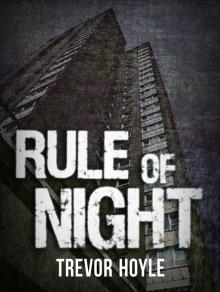 Rule of Night
Rule of Night The Man Who Travelled on Motorways
The Man Who Travelled on Motorways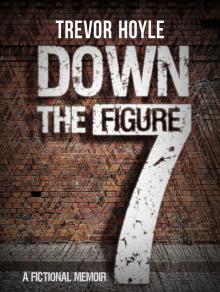 Down the Figure 7
Down the Figure 7 The Gods Look Down
The Gods Look Down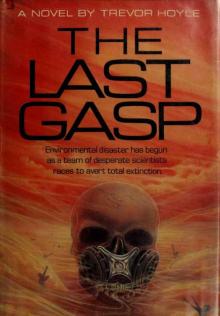 Last Gasp
Last Gasp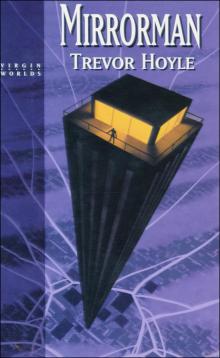 Mirrorman
Mirrorman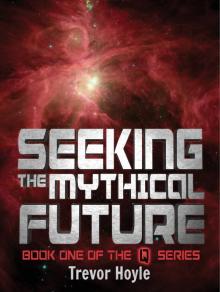 Seeking the Mythical Future
Seeking the Mythical Future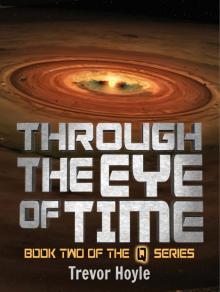 Through the Eye of Time
Through the Eye of Time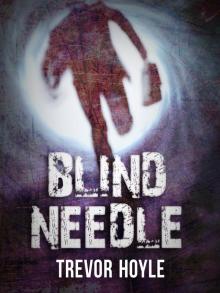 Blind Needle
Blind Needle Earth Cult
Earth Cult